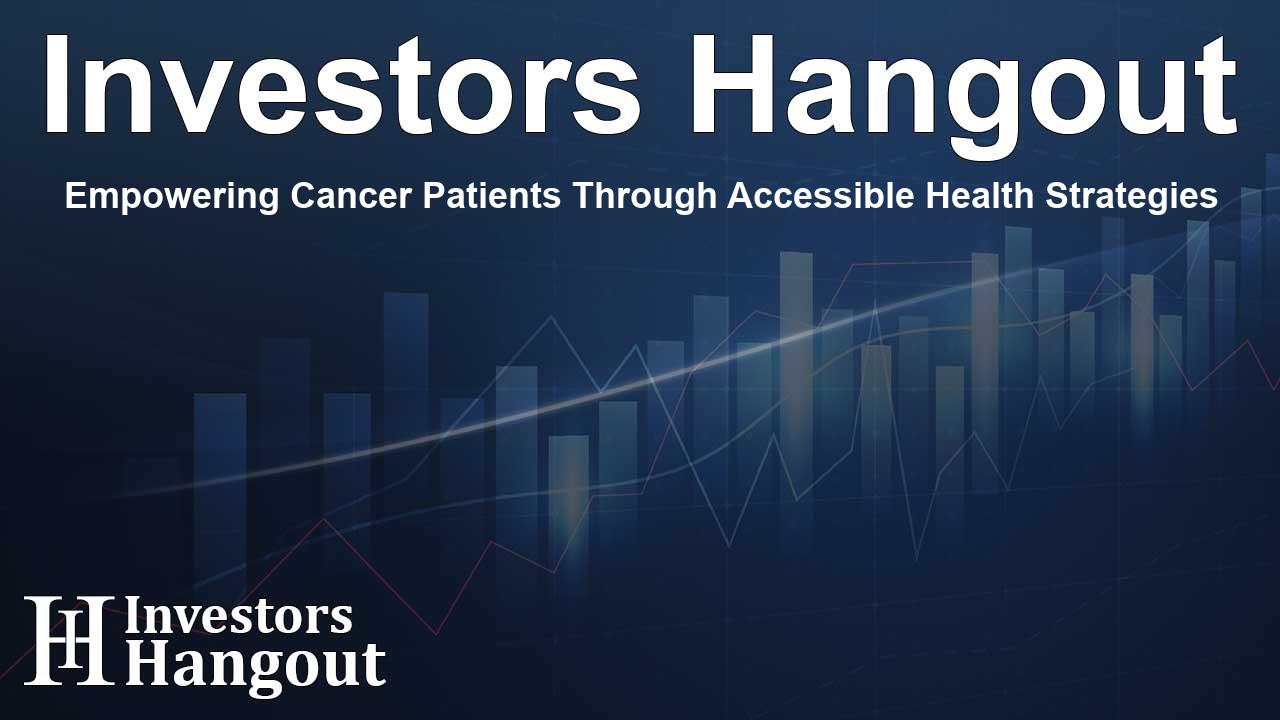Empowering Cancer Patients Through Accessible Health Strategies

Empowering Patients with Knowledge
Experts gathered to discuss navigating the overwhelming information landscape surrounding cancer care. The National Comprehensive Cancer Network (NCCN), a prominent non-profit alliance of leading cancer centers, hosted an enlightening Patient Advocacy Summit. This event focused on enhancing the access to trustworthy health information, which is crucial for patients battling cancer.
Keynote Highlights and Presentations
The summit featured impactful discussions and presentations from industry leaders, including a noteworthy address from W. Kimryn Rathmell, MD, PhD, Director of the National Cancer Institute (NCI). During the conference, Dr. Crystal S. Denlinger, CEO of NCCN, emphasized the significance of providing clear, reliable information to help patients make informed treatment decisions. The NCCN Guidelines for Patients were highlighted as a vital resource, offering evidence-based recommendations in an understandable format.
Focus on Patient-Centered Information
Attendees learned that empowering patients with quality information is key to improving health outcomes. Dr. Denlinger pointed out that when individuals facing cancer understand their options, they are better equipped to engage in their care. This year's summit concentrated on effective methods of communicating essential health information to patients and caregivers.
Best Practices for Misinformation Prevention
A crucial topic included the dangers of misinformation within the cancer care community. Speakers elaborated on the vital role of trusted community advocates in combating false information. Martha Dawson, Immediate Past President of the National Black Nurses Association, underscored the lessons learned from recent health crises, focusing on the importance of diverse voices addressing misinformation. Effective strategies can help disseminate accurate information and foster trust in the healthcare system.
Strategies for Clear Communication
Throughout the summit, a common theme emerged: clear, consistent messaging is essential in a complex health landscape. Speakers advised against the use of complicated medical jargon, emphasizing the need for relatable communication that resonates with patients from all backgrounds. They stressed the importance of empathetic communication, particularly for individuals facing life-altering diagnoses.
Building Trust Through Relationships
Building trust between healthcare providers and patients was another focal point of the discussions. Dr. Randi Ervin, a survivor and advocate from the Pancreatic Cancer Action Network, shared her personal experiences and reiterated the importance of open, compassionate communication. Participants agreed that establishing strong, two-way relationships enhances patient care and fosters better health outcomes.
Collaborative Efforts for Health Equity
As the conversations unfolded, insights into the need for collaboration emerged. Bryce Reeve, PhD from Duke University, highlighted that every individual deserves a voice in their healthcare journey. It is particularly vital for underrepresented communities to have their values and experiences acknowledged within the cancer care framework. Engaging veterans and first responders in dialogue is crucial in addressing their unique health needs.
Future Initiatives and Closing Thoughts
NCCN is committed to ongoing efforts to improve oncology care and communication. Attendees were encouraged to learn about upcoming events focused on topics like Primary Care and Oncology Collaboration and the role of Artificial Intelligence in cancer treatment. Together, these initiatives will pave the way for better health literacy and patient empowerment.
Frequently Asked Questions
What was the main purpose of the Patient Advocacy Summit?
The Patient Advocacy Summit aimed to provide strategies for improving patient access to accurate and evidence-based health information related to cancer care.
Who were some of the key speakers at the event?
Key speakers included W. Kimryn Rathmell, MD, PhD, and Crystal S. Denlinger, MD, who emphasized the importance of clear communication in patient care.
How does NCCN support patients in understanding cancer treatment options?
NCCN provides the Guidelines for Patients, which offer accessible, plain-language explanations of treatment options and recommendations.
What challenges does misinformation pose in cancer care?
Misinformation can create confusion for patients, delay treatment, and undermine trust between patients and healthcare providers.
How can patients ensure they receive trustworthy health information?
Patients are encouraged to seek information from reputable healthcare professionals and trusted organizations like NCCN and the National Cancer Institute.
About The Author
Contact Olivia Taylor privately here. Or send an email with ATTN: Olivia Taylor as the subject to contact@investorshangout.com.
About Investors Hangout
Investors Hangout is a leading online stock forum for financial discussion and learning, offering a wide range of free tools and resources. It draws in traders of all levels, who exchange market knowledge, investigate trading tactics, and keep an eye on industry developments in real time. Featuring financial articles, stock message boards, quotes, charts, company profiles, and live news updates. Through cooperative learning and a wealth of informational resources, it helps users from novices creating their first portfolios to experts honing their techniques. Join Investors Hangout today: https://investorshangout.com/
The content of this article is based on factual, publicly available information and does not represent legal, financial, or investment advice. Investors Hangout does not offer financial advice, and the author is not a licensed financial advisor. Consult a qualified advisor before making any financial or investment decisions based on this article. This article should not be considered advice to purchase, sell, or hold any securities or other investments. If any of the material provided here is inaccurate, please contact us for corrections.
